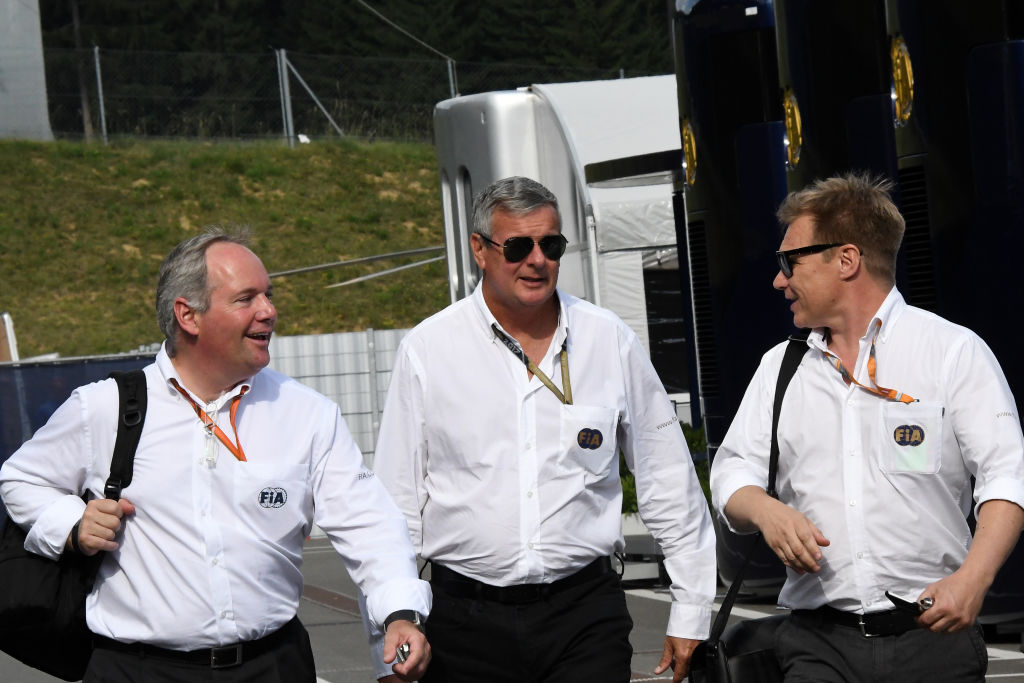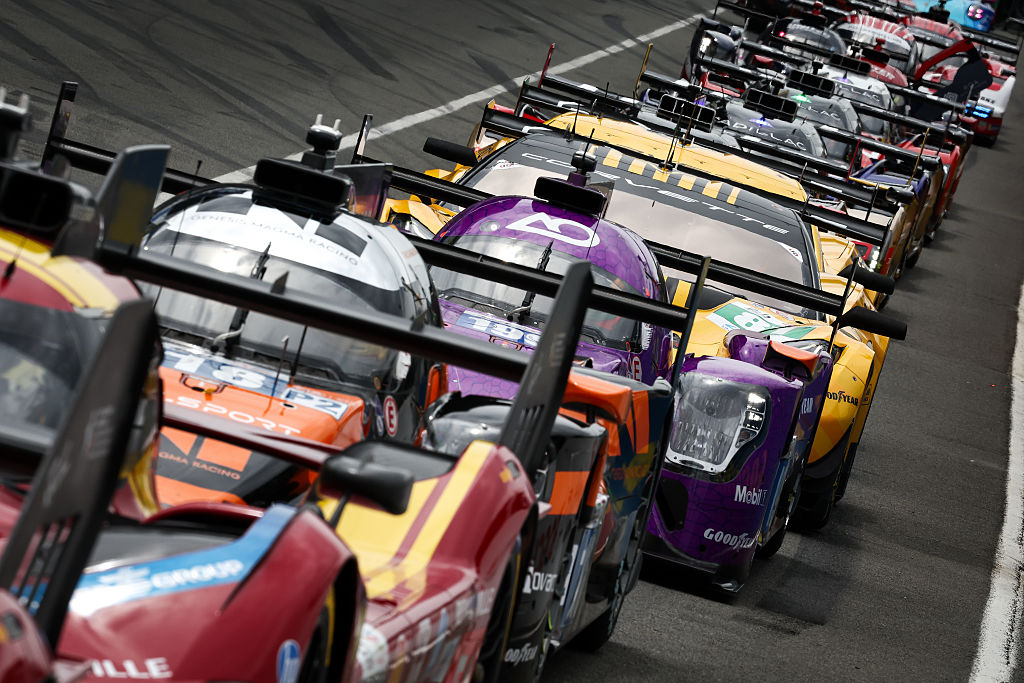Eight months after being fired by Mohammed Ben Sulaim, Tim Mayer is preparing to face the incumbent FIA president in an election held later this year in the top position in the International Governing Body of Motorsport.
While Mayer in America has a variety of careers in motorsports operating at high levels in IndyCar, Champion Car, IMSA and FIA, he can also list spells as chair of Formula 1 Stewards, along with time on the Endurance Committee, Circuit Committee, Off-Road Committee and the World Motorsport Council.
However, since last November, Mayer has been outside the FIA after being released from duties by texting from one of Ben Slayem’s assistants.
Thirty-four years after the sport, Mayer said it was time to give back, but also responded to what a former colleague in the Governing Body described as “almost hopeless in our presence.”
- Related: Mayer confirms his run against Ben Slayem for the FIA president
Much of Mayer’s motivation comes from his desire to provide an alternative to Ben Slayem’s leadership.
“If you look at the last four general meetings, there was a change in the decree that said, ‘Oh, this is modernization, this is democratization, this is for the integrity of the FIA.” And when you look at them all in the last four general assemblies, what you see is that this has gained the greatest power in FIA history.
“So, yes, it is pretty difficult and intentionally so, and that is not in the interest of the members.
“Unfortunately, looking at each of these changes individually, each sounds reasonable when a member is presented to the member. But looking at the whole thing, it’s not that much.”
To the point of difficulty, Mayer has yet to announce the names of some of his key team members. We note that doing so is a disadvantage based on the structure of the election.
The 59-year-old has revealed that some of his pledges resemble Ben Slayem’s back in 2021, but the FIA member club believes they have not seen the current president deliver those promises during his tenure, which has seen high levels of sales among high-level staff so far.
“Mohammed ran some good ideas. Focusing on small clubs and empowering small clubs was a good idea,” says Mayer. “The idea of reform at the FIA was a good idea. But what we saw is an illusion. It is an illusion of reform. It is an illusion of integrity.
“There is currently a situation where Mohammed has the authority to unilaterally dismiss FIA senators. Well, the FIA Senate should have ethics and economic oversight. So he can unilaterally dismiss those appointed to potentially provide oversight.
“We are looking at transparency and he was driven by transparency, but reporting to members is less transparent than ever.
“He is based on the idea that the organization should be diverse and include a variety of voices. But almost every senior leadership team he appointed (especially diverse voices, some very capable women) was pushed out, and why they told him the truth.
“That’s incredibly problematic. You can’t lose an entire generation of leadership when you talk seriously about diversity, include a diverse voice, and when they say no to you, the FIA will not be an effective organization with that management style.”

His time as a Formula One steward taught Mayer (left) that “the most powerful organization is the organization that works as a team.” Jose Maria Rubio/Sutton images
Mayer says his first term under Ben Suraem saw the president give him more power within the FIA, but he insists that if the American challenger succeeds in his campaign, he would not exploit that power, but instead attempt to undo many of those changes.
“My experience I’ve been to is that the most powerful organizations are those that work as a team,” he says. “So, if you are going to work as a team, you need to empower every structure you have, so you need to return clarity to the general meeting so that individual clubs can vote and make decisions in a clear and effective way.
“We need to return power to the members of the World Council, which has been enacted to represent all of those member clubs. Well, these World Council members are not even permitted to talk to member clubs about the content of the meeting.
“So, yes, it definitely is a question of reversing many of the policies that basically disenfranchised the rights of member clubs, deprived the World Council, and deprived senior leaders.
“We need to work as a team. We can’t manage a global organization. That’s absolutely impossible. So we need good management. We need professional management back to the FIA. We need good political leaders and we need discussion.
“I have never been in a place where one mandate became a successful organization, which has always robbed a team of people who have come up with great ideas and are empowered to carry out them.
“And when you think of the FIA president as CEO or as the company president, the role of the president is to create a vision and provide the people who work for that person and they have the tools to implement that vision, that is my management style.
The FIA direction under Ben Slayem is clearly the focus for Mayer when he begins his bid, but it is not the only one. Given the influence of the father of former McLaren team principal Teddy Mayer, and the times when their professional paths crossed, and sometimes conflicted, he says he has the experience needed to lead an organization with both the arsenal of sports and mobility.
Mayer’s manifesto includes a major focus on the growth of the FIA’s undeveloped region, and he describes as “providing the basics” when it comes to the professional aspects of sports at the international level.
“So, what I mean is that there are amazing individuals who help manage and host sports, but I don’t think the FIA does a good job of developing and nurturing a deep pool of staff,” he says. “I mean, it’s literally a row of depths in Formula 1 at the top level of the sport. I got one level by looting F2 and F3. Then it gets very thin.
“During the pandemic, we lost the steward seminar. They only did one more, but there’s this HPP (high performance program). This is a very thin attempt. And while it’s a difficult task, it’s a difficult task, but ultimately what the FIA offers to sports is a talented group.
“I was lucky enough to run Charlie Whiting (a longtime Formula One Race Director until his death in 2019) for about 15 years, and while it was great, we need to develop a whole new generation of Charlie White.”

Mayer compares WEC’s forward plans. This has been well-received with the interest of F1 manufacturers in recent years. James Moy Photography/Getty Images
Mayer also wants to lead the FIA’s roll out future regulations well beyond the next set.
“We should talk about the regulations of 2030, 2032 and 2034, not what we’re doing in the 2020s,” he says. “And I think that applies to rally and rallycross and basically all of our major championships. I think that’s a key element of the FIA that’s not been doing very well at this point.”
Although Mayer’s sports experience is clear, he believes that the FIA’s reputation has been smashed in recent years, affecting his ability to succeed on mobility responsibility.
“I’m about as much as someone who grew up in sports. I mean, I literally grew up in sports. I’m also an incredibly respectful person on the mobility side of this,” he emphasizes. “And that is where, from my perspective, I could give back to those little mobility clubs and make the biggest impact they could address their agenda, influence government strategies and have a lasting impact on the lives of millions of people.
“It’s a pretty amazing opportunity, and that’s another strong reason why I’m running because we really think we need to rebuild the FIA’s global reputation so that we can have that impact on the lives of millions of people.”
Meyer says he is leaning against the experts to build the mobility side of his manifesto. But at the same time, he says that it is evidence of an approach to leadership, as he wants to bring in a diverse group of members to challenge him.
“We have to take people around the table and come up with real ideas to really understand the problems and fix them,” he points out. “It’s not just saying, ‘I know it well.’


